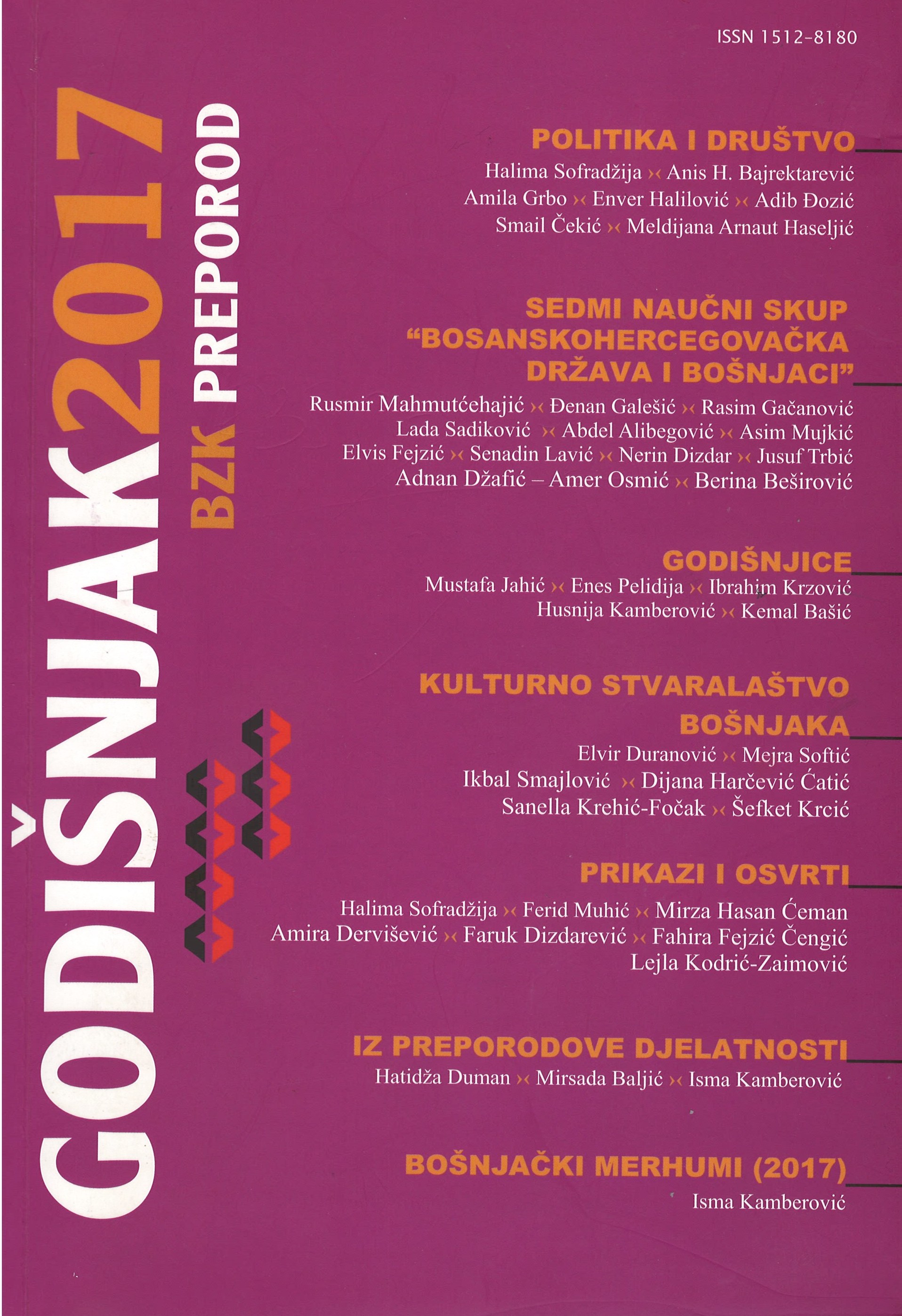Identitetske osnove bosanske nacije kroz posebnosti etniciteta
IDENTITY BASICS OF BOSNIAN NATION THROUGH PECULIARITIES OF ETHNICITY
Author(s): Adnan Džafić, Amer OsmićSubject(s): Law, Constitution, Jurisprudence, Politics and Identity, Identity of Collectives
Published by: Bošnjačka zajednica kulture "Preporod"
Keywords: Bosnia; Bosnian nation; Bosniaks; ethnicity; Croats; identity; nation; history; Serbs;
Summary/Abstract: The multi-century existence of medieval state territorial entity with Bosnian bans and kings, developed economic and trade organization with its own money, autochthonous religion and culture, letter, language, and consciousness of belonging to Bosnianhood were the basic components that shape the basic identity of which the Bosnian ethnic (historical social-cultural) community can call the Bosnian people in the Middle Ages. From the 15th century has begun the splitting of a not completely shaped Bosnian national identity. Since that time, Islam has become a new religious content that has influenced to the socialization processes of individuals and social groups, enriching the Bosnian culture. The time of the most powerful national upheaval of the 16th and 17th centuries was the time of "discontinuity" of Bosnian identity. Muslims are formed into a special Bosnian community. Muslimhood was possible on the basis of Bosnian Christianity and was not separable from it. Bosnian Orthodox and Catholics were developing into the articulated ethnic-national category. "By identifying religious, political, economic and cultural differences between three main Bosnian social groups, the process of breaking the Bosnian identity was continued. Bosnian people did not appear even in the 19th century. All attempts to establish Bosnian national ideology in Bosnia in the nineteenth century were ending unsuccessfully "(Kržišnik-Bukić, 1997: 69). Religious and other separating lines, from the second half of the 19th century, were being broken by potentially greedy ethnically related neighbours. Because of nationalisms discovered, the Yugoslav state did not allow the emancipation of Bosnianhood as a social community with a special identity, even though there were some attempts. At the beginning of the nineties, the basic national program orientations have turned into the nationalistic ones. The breakdown of Yugoslavia formed the conditions for the establishment of a super-ethnical, governmental, national Bosnian identity. The effort for realization of state independence should rely on tradition of the medieval identity.
Journal: Godišnjak Bošnjačke zajednice kulture »Preporod«
- Issue Year: 2017
- Issue No: 1
- Page Range: 311-323
- Page Count: 13
- Language: Bosnian

